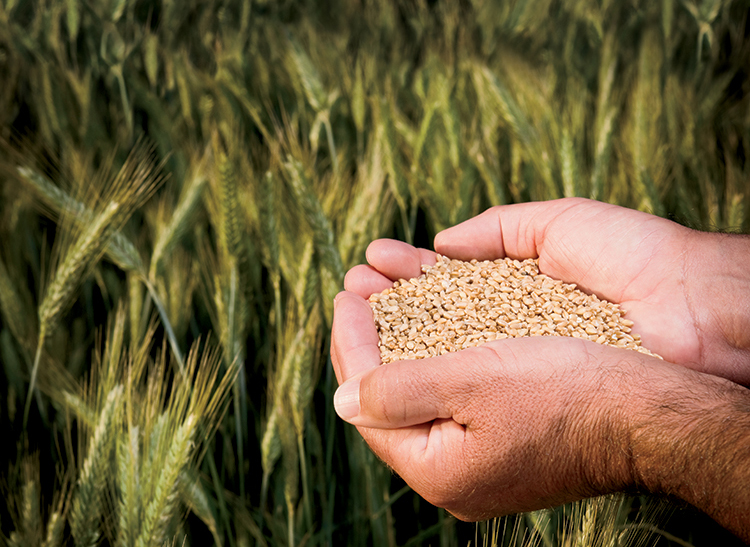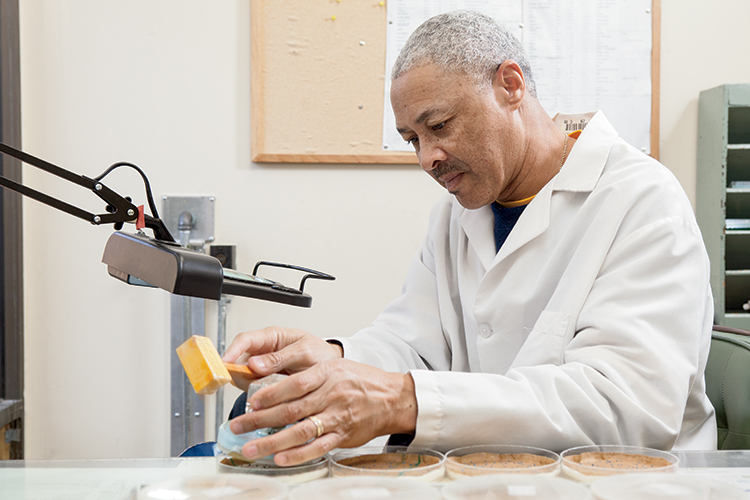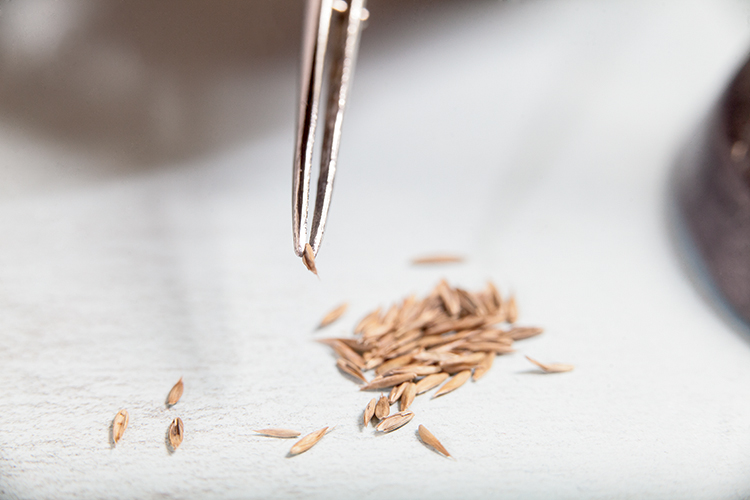Home > Alabama > Alabama Environment > Alabama Agriculture is Rooted in Responsibility
Alabama Agriculture is Rooted in Responsibility

Andrae McMillian sits in his Montgomery office poring over a tray of seed from a seed supplier, separating the pure from the weed seed, those sneaky little stones, grasshopper heads, garbage, other crop seed or anything that is not a seed itself, before testing begins. He is very careful because he knows what’s at stake if he isn’t.
As employees of the Alabama Department of Agriculture and Industries’ seed lab, McMillian and his staff hold some of the most important jobs in agriculture. The lab serves as a regulatory agency to help protect growers from investing in low-yielding inputs and to ensure the seed being sold to the state’s farmers is of the highest quality.
Starts With the Seed
“Everything starts with the seed,” says McMillian, lab director. “In order to get to the corn and the other food on the table, you have to start with the seed. Seeds are so valuable because if you get bad seed, the grower suffers. He’s not only spending money for the seed, he’s spending money to plant the seed – fuel costs, labor costs, fertilizer costs. He’s going to spend money on pesticides and herbicides, and if he has a bad yield, he’s going to lose all that money.”
McMillian says growers aren’t the only ones affected by poor-quality seed.
“The wholesalers don’t want that to happen. They would rather find out the seed is bad before they sell it to their customer, many of whom they’ve had a relationship with for decades, for generations, from their parents and grandparents,” he says, “and they don’t want to pass bad seed on to people they’ve known forever or even to a complete stranger. For one thing, they’re financially liable for it and, for another, their name and reputation is too important. In this state, the name of a business goes a long way, and wholesalers want to protect their name and reputation.”

Working Relationships
Jeannie Bragg Harvey, co-owner of Bragg Farms, a wheat and soybean seed supplier in Toney agrees.
“There are private laboratories we use just as another safeguard, but if there’s ever a question about the quality of seed, that lab report with the seal of Alabama on it and someone’s signature on it verifying that the seed was tested stands up as the definitive statement about the seed. And it’s very important for us to have that. This is our reputation that’s on the line,” Bragg says.
Bragg says the relationship her family’s business has with the seed lab is an important one.
“I have a good working relationship with the seed lab. We get timely and accurate results, and there’s great communication from the inspectors,” she says. “And if I get seed from another seller, I send it to the seed lab for analysis, so I utilize the seed lab as both a seller and a consumer.”
The regulatory work of the seed lab can also have a significant economic impact on consumers. McMillian says growers can only pass the proverbial buck down so far, and more often than not, have to bear the brunt of a bad yield.
“Imagine if the whole state planted bad seed, and that season nothing came up. The price of everything would skyrocket,” McMillian says. “For example, if you had a bad yield of corn, the price of corn would go up in the grocery store. And if a farmer is feeding their cattle or their hogs corn and there’s a bad yield, they’re going to have to pay more to feed their animals, which means you’re going to have to pay more at the grocery store for meat – and not only meat, but you’ll pay more for your soybean oil or your cooking oil. The consumer would definitely feel it.”




